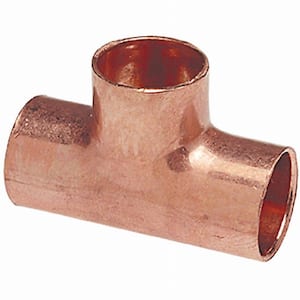Elevate Your Craftsmanship with High-Performance Copper Products for Artisans
Elevate Your Craftsmanship with High-Performance Copper Products for Artisans
Blog Article
Exactly How Copper Products Contribute to Lasting Practices in Various Sectors
Copper products are progressively recognized for their significant payments to sustainable methods throughout multiple markets, driven by their fundamental residential properties such as toughness, recyclability, and efficiency. In eco-friendly power systems, for instance, copper improves the performance of solar and wind innovations, while its application in construction reduces waste via durability. In addition, the product's antimicrobial attributes use promising benefits in healthcare settings. As industries seek to take on even more sustainable methods, the role of copper can prove critical in attaining environmental objectives. What ramifications might this have for future developments in sustainability?
Copper in Renewable Energy
Copper plays an important role in the improvement of renewable energy modern technologies, working as a crucial conductor in various applications. Its extraordinary electrical conductivity and resistance to deterioration make it an excellent product for electric circuitry, which is important in photovoltaic panels, wind generators, and energy storage systems. In solar photovoltaic or pv systems, copper is utilized in the affiliations and circuitry, allowing efficient energy conversion from sunlight to power.
In wind energy, copper is indispensable to the generators and transformers that convert kinetic energy right into electrical energy, making certain optimum efficiency and reliability. Furthermore, the demand for electrical vehicles (EVs) is boosting, with copper being a vital part in batteries, electric motors, and charging infrastructure. The change to EVs substantially boosts the need for copper, as these automobiles normally utilize four times extra copper than conventional interior burning engine vehicles.
As the world looks for to mitigate climate adjustment and transition to lasting power sources, copper's function ends up being increasingly vital. The material not just boosts the efficiency and toughness of sustainable power systems yet also sustains the broader objective of decreasing greenhouse gas exhausts and advertising a sustainable future.
Eco-Friendly Construction Materials
Over the last few years, there has actually been a noteworthy shift towards the adoption of environmentally friendly building materials in reaction to growing ecological concerns. This adjustment is encouraged by the need for sustainable choices that lessen ecological footprints while keeping architectural stability and visual appeal.
Copper, known for its sturdiness and recyclability, has actually arised as a vital gamer in this market. It can be used in roofing, pipes, and electric systems, contributing to power performance and lowering waste. Copper's long life indicates less replacements over time, additional boosting its sustainability profile.
Additionally, materials such as bamboo, redeemed timber, and recycled steel are gaining appeal. These choices not just offer decreased environmental influence but likewise promote source preservation. As building codes significantly stress sustainability, designers and home builders are incorporating these products right into their jobs, fostering advancement in layout.
The raising adoption of eco-friendly construction materials mirrors a broader dedication to sustainability in the constructed atmosphere. By prioritizing these materials, the building industry can substantially reduce its carbon impact, straighten with regulative standards, and sustain a much healthier community for future generations. This pattern marks a crucial step towards a much more lasting future in building.
Copper's Role in Health care
Current research studies have highlighted the considerable role of copper in medical care settings, specifically as a result of its antimicrobial residential or commercial properties. Copper surface areas have actually been revealed to lower the existence of microorganisms, consisting of germs and infections, by approximately 99.9% within a brief period. This exceptional effectiveness makes copper an important product for high-touch surface areas in hospitals, such as doorknobs, bed rails, and IV poles, thereby adding to improved infection control actions.
In addition to its straight antimicrobial effects, copper also plays a function in the wider context of health center sustainability (Copper Products). By including copper right into medical equipment and furnishings, health care centers can lower the incidence of healthcare-associated infections (HAIs), which not only enhances individual outcomes however also decreases the prices related great post to read to prolonged health center stays and extra therapies
Moreover, copper's durability and recyclability straighten with sustainable methods, allowing for liable source administration. As healthcare systems increasingly prioritize both individual security and environmental stewardship, the combination of copper products is coming to be more prevalent. This twin benefit emphasizes copper's essential contribution to a healthier, safer, and extra lasting healthcare atmosphere.
Sustainability in Transport

Furthermore, copper's longevity and rust resistance add to the long life of transportation facilities (Copper Products). In rail systems, for instance, copper components boost the reliability and efficiency of signaling and power systems, necessary for lowering delays and power usage. Furthermore, copper's role in renewable resource systems, such as solar and wind, sustains sustainable transportation options by supplying tidy energy for electrical transit choices
Investments in copper technology not just foster sustainability but also boost financial growth and job creation in eco-friendly sectors. As markets make every effort to meet strict ecological laws, the application of copper items in transportation arises as a critical technique in achieving sustainability goals and advertising a cleaner, extra efficient future.
Copper and Circular Economy
As the globe significantly welcomes sustainability, the duty of copper in the circular economic climate ends up being ever extra significant. Copper's inherent residential properties-- such as its toughness, conductivity, and recyclability-- position it as an essential material in a resource-efficient economic climate. The circular economy aims to lessen waste and make best use of resource usage with recycling and reusing materials, and copper excels in this regard.
The steel can be reused forever without loss of quality, making it a perfect prospect for lasting practices across numerous markets, consisting of construction, electronics, and renewable resource. By recuperating and recycling copper from end-of-life products, industries can substantially decrease the need for virgin materials, thereby decreasing environmental effects related to mining and processing.
Moreover, the combination of copper right into round economic climate structures not just preserves resources however likewise promotes development. Organizations that focus on copper recycling add to an extra sustainable supply chain, enhancing their competition while lining up with regulatory needs article source and customer choices for eco liable items.
Final Thought
Finally, copper products significantly contribute to lasting methods throughout multiple fields. Their vital duty in enhancing renewable resource modern technologies, advertising environment-friendly building products, sustaining infection control in healthcare, helping with lasting transportation, and symbolizing the concepts of a circular economic situation highlights the convenience and importance of copper. By integrating copper right into different applications, markets can attain blog better effectiveness, minimize ecological impact, and align with worldwide sustainability goals, ultimately promoting a much more sustainable future.

Copper's outstanding conductivity makes it a preferred product in electric lorry (EV) systems, improving energy performance and efficiency. Additionally, copper's function in sustainable energy systems, such as solar and wind, sustains lasting transport solutions by giving tidy energy for electrical transportation alternatives.
Their important function in enhancing eco-friendly power technologies, promoting green building products, sustaining infection control in healthcare, facilitating lasting transportation, and embodying the principles of a round economic climate emphasizes the convenience and importance of copper.
Report this page